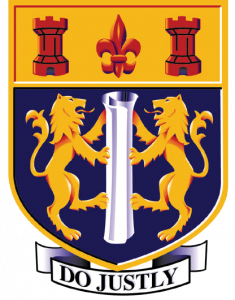
NCEA Level 2 and 3 Journalism Studies 322
JOU322 Course DescriptionTeacher in Charge: Ms T. McMullan.
Recommended Prior LearningStrong communication skills are an asset. Experience in editing, photography and/or writing is beneficial, but not essential. This course can be taken in addition to Media Studies and/or English.
Journalism Studies 322
The combined level course aims to build on the skills developed in Media Studies and/or English. Students will learn introductory journalism skills with a focus on producing items for TC News and the Tawahi, the school magazine. The practical focus will include conducting interviews, formatting, layout and editing, and producing news items in written or visual form. Students will also explore changes in the news medium and ethics surrounding the journalism code of conduct. A key focus in Media Studies is student agency, with the teachers modelling the required skills and context and students producing products with a real-world focus.
Course Overview
Term 1
Join us on an exciting journey as we delve into the captivating world of news. In this course, we will embark on an exploration of what defines news and witness the ever-evolving nature of the news medium. We will also delve into the fascinating realm of ethical considerations in the news and new developments around it (2.7 and 3.7 Media Studies, 3 credits).
Prepare to sharpen your interviewing and research skills, essential tools for any aspiring journalist. Discover the art of crafting a compelling news story using the classic inverted pyramid style, a technique that informs readers from the very first sentence. Additionally, we will delve into the realm of video news production, equipping you with the knowledge to create interesting news items.
You will begin your production portfolios. We will also explore the captivating world of branding, where we will co-construct a vision for Tawahi and TC News for the year. By becoming leaders in these areas, we will work with student volunteers outside of the course to bring these visions to life.
Term 2
In Term 2, we delve deeper into the realms of reporting and feature writing. We will also touch on the worlds of podcasts and radio production, allowing your voice to resonate through the airwaves. Additionally, we will unlock the secrets of documentary-style factual filmmaking, empowering you to bring real stories to life through the power of visuals.
As we progress, we will collaboratively craft a digital spread of Tawahi, while maintaining the on-going coverage of school events on TC News.
Term 3
In Term 3, we journey into the world of layout and drafting, as we put the finishing touches on our eagerly anticipated school magazine. But that's not all! Get ready to embark on an exploration of the dynamic realm of radio and podcasts, where we'll dive headfirst into the art of producing captivating audio content. This opportunity will grant you invaluable experience in not just one, but all three mediums of journalism. Don't miss out on this chance to unleash your creativity and leave a lasting impact!
Term 4
Term 4 will see up tidy up any loose ends and produce the finalised Tawahi.
Detailed Course Outline Assessment Information
Journalism is made up of a mix of unit and achievement standards. At each level, there will be approximately 20 credits available. The course is designed so that Year 12 students can work through a 2 year Journalism course. Many of the standards are portfolio based, so will be awarded at the end of the year.
NCEA Level 3 Media Studies 301
Career PathwaysJournalist, Photographer, Advertising Specialist, Copywriter, Communications Professional, Event Manager, Personal Assistant, Trainer, Teacher of English to Speakers of Other Languages (ESOL), Primary School Teacher, Kaiwhakaako Māori, Tertiary Lecturer, Private Teacher/Tutor, Recreation Co-ordinator, Secondary School Teacher, Animator/Digital Artist, Actor, Archivist, Art Director (Film, Television or Stage), Artistic Director, Film and Video Editor, Sound Technician, Author, Film/Television Camera Operator, Technical Writer, Director (Film, Television, Radio or Stage), Radio Presenter
Contributions and Equipment/StationeryA camera and SD card or smartphone is helpful for students to have, but not compulsory.